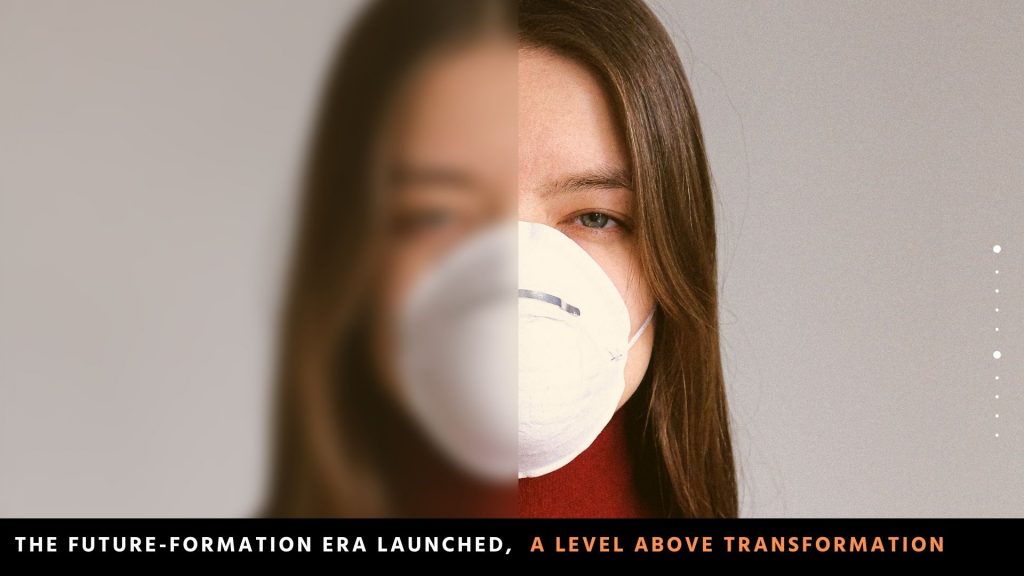 BY GANESH SOMWANSHI
BY GANESH SOMWANSHI
Covid-19 has forever changed the rules of the game in healthcare.
As individuals around the globe adjust to life in the age of the worldwide pandemic some are busy creating approaches to adapt to the digital world as “reality”. These are testing times for everyone as tracking updates of the virus spread and fatalities could be overwhelming.
There have been many discussions about the transformation in the healthcare and pharma sector where countries need to think of “future-formation” which is one step ahead of transformation.
Medical tourism is a prosperous industry in Asia. While few countries are closing boundaries few are mending ways to better trade between them. Countries like Thailand, India, Malaysia, South Korean and Singapore are working on building medical tourism as the world readies itself to embrace change.
A webinar “COVID-19 Conundrum” was conducted by insiderecent.com on 18 October 2020 which had doctors and experts from Scotland, Singapore, Malaysia and India. The discussions revolved around the pandemic situation, patient care approach and healthtech.
Dr. Krishna Prasad, FRCP (London) MRCP (Edinburgh), Consultant in Acute Medicine & Intensive Care Physician, University Hospital Ayr, Scotland voiced his thought saying: “The relationship between doctors and patients have changed significantly which is a welcome change. The hospitals are focusing on patient care-doctor support programmes while
London is gearing itself to face the second wave”.
Pharma companies and healthcare practitioners are investing heavily in digital innovations. The integration is of paramount importance and it seems healthcare industry globalisation will shape up quickly. The telecom conglomerates are eyeing pharma companies for developing their 5G infrastructure set up and enhancing their manufacturing innovation, the healthcare furniture market too has seen a sharp growth amidst the pandemic.
Internet Of Things (IoT) has gained momentum post the pandemic. It has become easy to consult a doctor, get a diagnosis done and receive a prescription – all via a video call. Post verification medications are delivered to the patients doorstep. There were few technology companies who are capitalising on their “first-mover-advantage” of reaching out pro-actively to the patients, the competition post the pandemic is unbearable. A face-to-face clinic visit to a doctor is passé and remote care solutions have become easier and a practical option across the world.
“Coronavirus have loaned catalyst to advanced change across many businesses as worldwide pandemic alleviation measures have dramatically changed the manner in which we live and work. In any case, it is in medical care where “digitisation is going on the most,” said Dr. Shailendra Bajpai, MBBS, MD (Medicine), Sanofi Emerging Markets, Head of
Disease Management for Diabetes and Cardio Vascular, Singapore, who was one of the panelists.
“At this point when you take a gander at the continuum of the worth chain, I think doctors, scientists, organisations, medical care foundations and the specialists are optimising the entire idea of democratising medical care across the globe. Vaccine nationalism has been a major issue but few governments are co-operating and are having “people-first” approach. The circumstance has requested that bottlenecks be tended to rapidly as far as red-tapism is concerned. In particular, formality relating to administrative endorsements to address healthcare issues, such as, quality, consistence, wellbeing, security and information protection is being considered as top priority.
“Government of India has released a telehealth and telemedicine guidelines which has been appreciated by other countries. This has made adoption easier for regulators and policy makers and will definitely improve the healthcare ecosystem across the wider population inIndia. The wave of digitisation has spread across Asia and brands like DocDoc and MyDoc in Singapore and HaloDoc in Indonesia are a part of the evolution.
“In addition health ATMs have already been introduced to some extent in markets such as China and India, especially in remote areas of the country where healthcare is less accessible. Extremely efficient and effective, these ATMs have been used for diagnosis, consultations and for the issuance of prescriptions for both primary healthca e needs and chronic
diseases. COVID-19-related updates and queries are answered on these ATM’s to empower the citizens. Chat-bots have replaced humans to make the technology user-friendly.
Dr. Ajay Sankhe, Director, Bhaktivedanta Hospital, India, who also spoke at the webinar, said: “It’s an era where the perception of doctors being considered as gods has changed due to fatalities world-wide due to corona. Tech and innovation has become supreme. We facilitated setting up the first exclusive COVID facility locally with 100 beds and 20 ICU beds and this could not have been possible without technology support.”
Melaka exco member for Malaysian Association of Hotels (MAH) Datuk Marco Seow, who was the chief guest for the webinar, appreciated the efforts put in by the Malaysian Government to control the spread of the virus. He said that Singapore and Malaysian governments are working with each other to get a bigger picture on measures embarked to
deal with the effect of the pandemic and adopting newer technologies to flatten the curve till the vaccine is available.
The big question that comes to our mind, will digitisation affect the human manpower in the healthcare segment? Tech will be an enabler and hence will adapt to the change of reaching out to the masses in the shortest time and will be a cost-effective and holistic model.
Robots can be extremely helpful but when it comes to understanding the nuances it would certainly require human intervention. AI can certainly help but it needs to match with “cohorts” and “archetypes” which can surely be curated.
Before the pandemic there seemed to be a big gap between patient care and pharma companies but IoT has made a
phenomenal difference now. Those healthcare providers who are using tech will suresurvive and rule. The lack of compassion and empathy are crucial for patient care which will be addressed as the world of care evolves further.
Digital health records are bettering the algorithms to understand the patients at system level. Patient data is helping the governments to better their healthcare offering for the population and for planning city’s healthcare investments. Frontline health workers are constantly updating data to the system on real-time basis and closely working with startups
to upgrade their skills. Healthtech revolution that streamline the supply chain of care will play a big part in reducing operating costs while improving patient access to health expertise.
The insurance segment too is seeing a boost in ASIA and recent tie-up between Allianz PNB Life and award-winning social enterprise reach52 is the testimony to the growing need. Reach52 has found its niche where the social enterprise is working towards bringing next gen healthcare systems for the 52% of the world’s population who still don’t have access to health services.
Currently, training is provided to members by reach52 and tech platforms are developed for penetrating in rural communities. DBS Foundation has recently invested in the company , which works with not just with pharmaceutical companies, but also government agencies, non-governmental organisations (NGOs) as well as insurance companies to offer undeserved communities access to affordable products and services.
Dr Ajay strongly recommends and supports healthtech but fears the data used to develop the nation’s healthcare system should not be misused. He added: “Transformation is key but not at the cost of losing confidential data of the patients. Asia will witness the biggest ever digital boom, as there is low-middle income population and an urgency to grow the
healthcare ecosystem cannot be ignored. Cost effective technology solutions will rule the market. ”
There are many companies who wish to come out with medtech solutions because they want to catch up with others. The pandemic demands an “open source” approach to make this world a better place. In July 2020, Bhaktivedanta Hospital had launched a knowledge sharing platform called “Share It” between India and Malaysia.
Melaka Chief Minister Datuk Sulaiman Md Ali on announcing the collaboration had said that they were willing to share the information with other countries on how Malaysia had managed to combat Covid-19 pandemic, effectively and help them to flatten the curve.
The primary objective and learnings from the pandemic is to meet the needs of the population across the globe with regards to healthcare facilities, education, poverty and create solutions to make a social impact. Time has come to change for a reason, build global community and serve the people.












